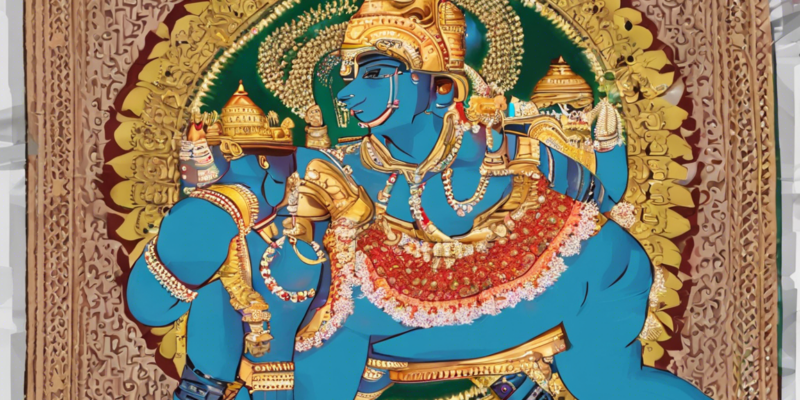Each year, the first month of the Hindu lunar calendar, known as Sawan, holds immense significance for devotees across India. This auspicious month is dedicated to Lord Shiva, and millions of Hindus observe various fasts and rituals to seek his blessings during this time. In 2023, Sawan is set to begin on Friday, 23rd June 2023, and will last till Saturday, 22nd July 2023. This period is marked by vibrant celebrations, religious ceremonies, and spiritual practices that hold special meanings for devotees.
Significance of Sawan:
Sawan is considered one of the holiest months in the Hindu calendar, particularly significant for Lord Shiva devotees. According to Hindu mythology, it is believed that during this month, Lord Shiva drank the poison that emerged from the ocean during the Samudra Manthan (churning of the ocean), to save the world from destruction. As a result, devotees fast, pray, and perform various rituals to seek Lord Shiva’s blessings and protection.
Rituals and Celebrations:
During the month of Sawan, devotees engage in various rituals and practices to show their devotion and seek Lord Shiva’s grace. Some of the common traditions observed during this time are:
Fasting:
Fasting is an integral part of Sawan celebrations, with many devotees observing fasts on Mondays, known as Sawan Somvar, throughout the month. It is believed that fasting during Sawan brings happiness, marital bliss, and overall well-being.
Offering Jal (Water) to Shiva Linga:
Devotees offer water or milk to the Shiva Linga along with Bilva leaves and Bhaang (a drink associated with Lord Shiva) as a form of worship and reverence. This practice is known as Jal Abhishek and signifies purity and devotion.
Visiting Shiva Temples:
Visiting Shiva temples during Sawan is considered highly auspicious. Devotees often undertake Kanwar Yatra, a pilgrimage where they carry kanwars (decorated pots) filled with holy water from the Ganges River to offer at Shiva temples.
Chanting Mantras and Bhajans:
Devotees recite Shiva mantras and sing bhajans dedicated to Lord Shiva to invoke his blessings and express their devotion. The chanting of “Om Namah Shivaya” is particularly prevalent during this month.
Wearing Rudraksha Beads:
Wearing Rudraksha beads is believed to have a protective and spiritual significance, especially during Sawan. These beads are associated with Lord Shiva and are considered auspicious for meditation and spiritual practices.
Kanwar Yatra:
The Kanwar Yatra is a significant tradition during the month of Sawan, where devotees, known as kanwariyas, travel long distances on foot to fetch holy water from the Ganges River and carry it back to their local Shiva temple. This pilgrimage is a demonstration of faith and devotion towards Lord Shiva.
Conclusion:
The month of Sawan holds immense spiritual significance for devotees of Lord Shiva. Through fasting, prayers, rituals, and celebrations, devotees seek blessings, protection, and spiritual fulfillment during this auspicious time. The vibrant festivities and traditional practices that characterize Sawan bring communities together in devotion and reverence for the divine.
Frequently Asked Questions (FAQs) about Sawan Start Date 2023
Q1: When does Sawan start in 2023?
A: Sawan is set to begin on Friday, 23rd June 2023, and will last till Saturday, 22nd July 2023.
Q2: What is the significance of Sawan?
A: Sawan is considered a holy month dedicated to Lord Shiva, where devotees seek his blessings through fasting, prayers, and rituals.
Q3: What are some common rituals observed during Sawan?
A: Some common rituals include fasting on Mondays (Sawan Somvar), offering water to the Shiva Linga, visiting Shiva temples, chanting mantras, and wearing Rudraksha beads.
Q4: What is Kanwar Yatra, and why is it significant during Sawan?
A: Kanwar Yatra is a pilgrimage where devotees carry holy water from the Ganges River to Shiva temples, showcasing their faith and devotion to Lord Shiva.
Q5: How do devotees celebrate Sawan?
A: Devotees celebrate Sawan by fasting, performing rituals, visiting temples, chanting mantras, singing bhajans, and participating in the Kanwar Yatra pilgrimage.
Q6: Why is chanting “Om Namah Shivaya” important during Sawan?
A: Chanting “Om Namah Shivaya” is a powerful mantra dedicated to Lord Shiva, believed to invoke his blessings and bring spiritual fulfillment during Sawan.
Q7: Is wearing Rudraksha beads significant during Sawan?
A: Yes, wearing Rudraksha beads is considered auspicious during Sawan, as they are associated with Lord Shiva and are believed to have spiritual and protective qualities.
Q8: How is Sawan celebrated in different parts of India?
A: Sawan is celebrated with great fervor across India, with variations in rituals and traditions based on regional customs and beliefs.
Q9: What role does fasting play during Sawan?
A: Fasting during Sawan is believed to bring happiness, marital bliss, and overall well-being, while also demonstrating devotion and self-discipline.
Q10: How can one participate in Sawan celebrations if unable to visit temples?
A: Individuals can observe Sawan by fasting, offering prayers at home, chanting mantras, listening to bhajans, and engaging in acts of charity and kindness to honor Lord Shiva’s blessings during this auspicious month.
Sawan is a time of deep spiritual significance and devotion for millions of Hindus worldwide, as they seek the blessings and grace of Lord Shiva through traditional practices and heartfelt celebrations. This sacred month serves as a reminder of faith, unity, and the enduring connection between devotees and the divine.

